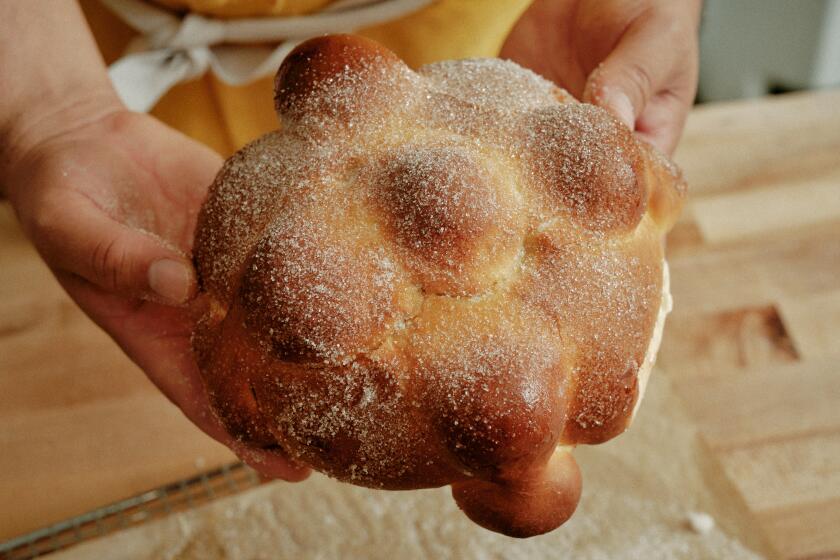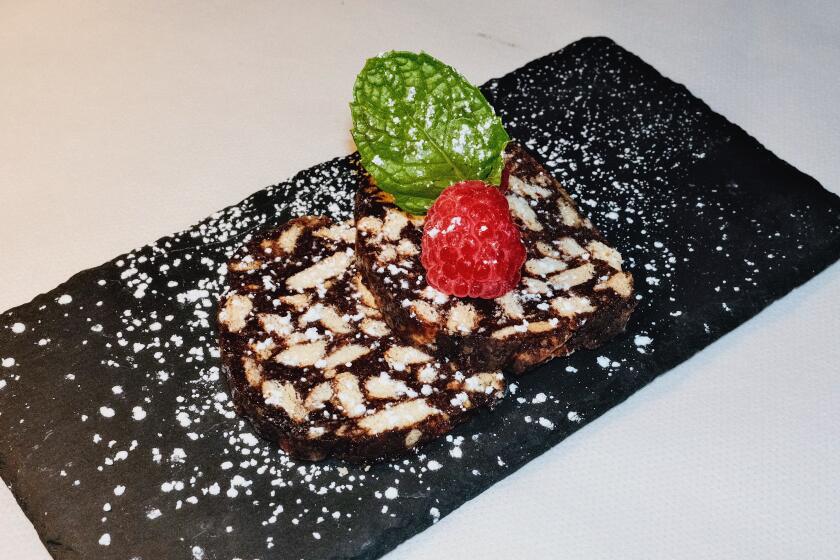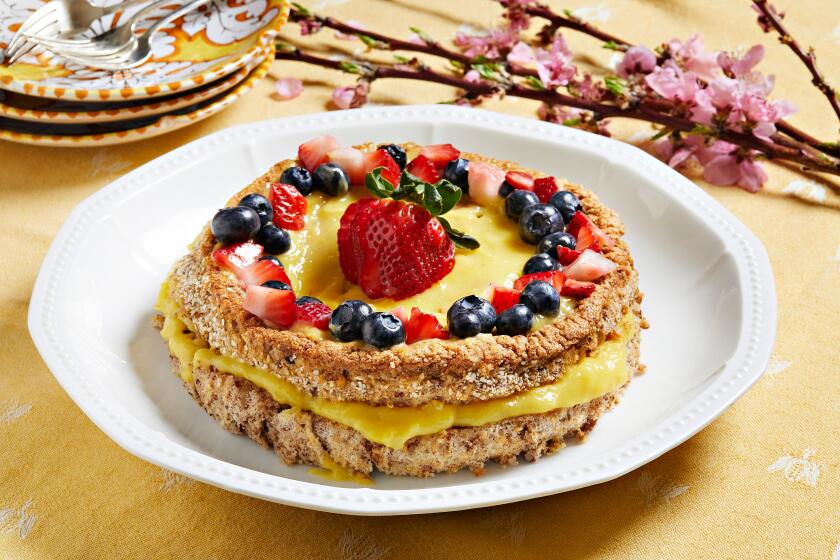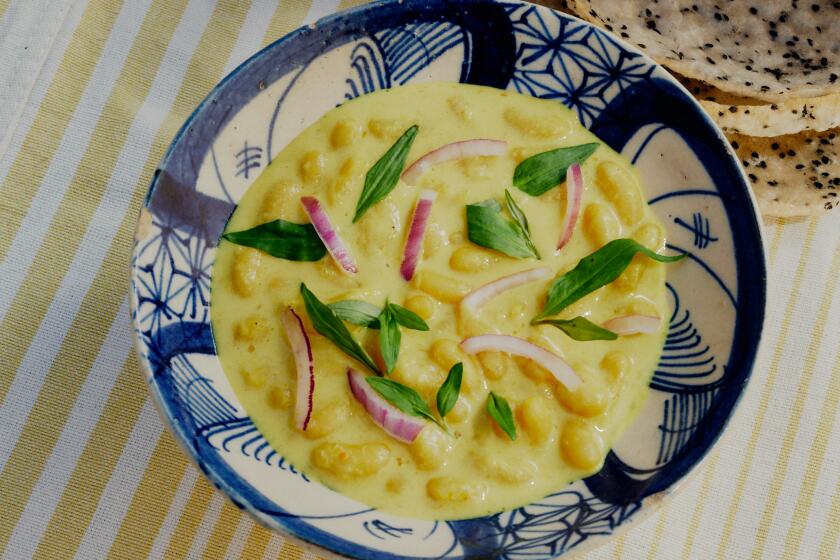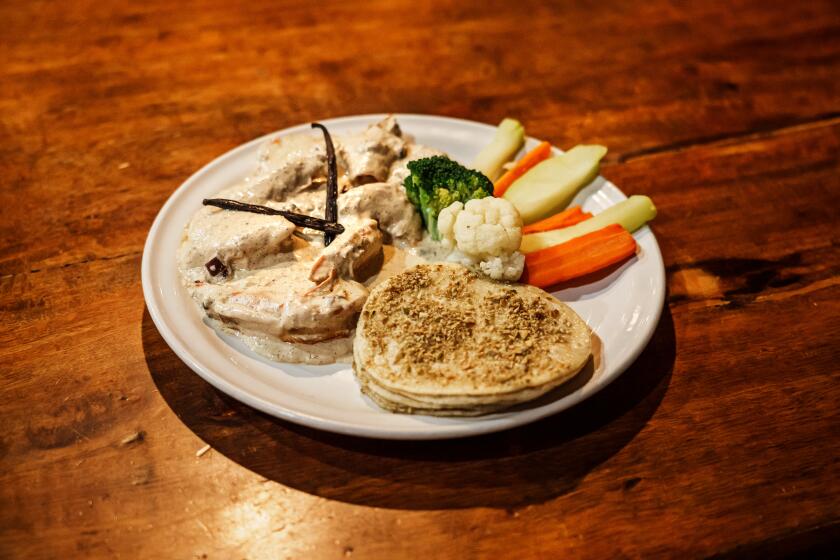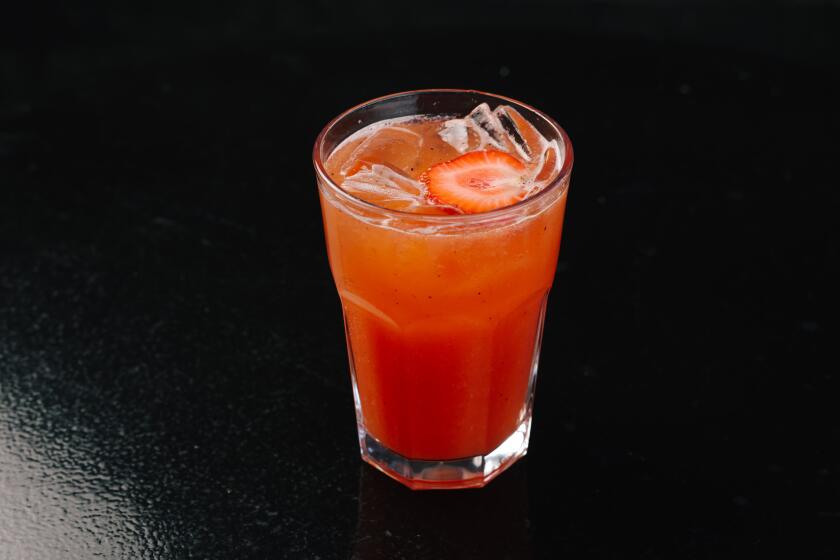Homemade Butterfinger Bites
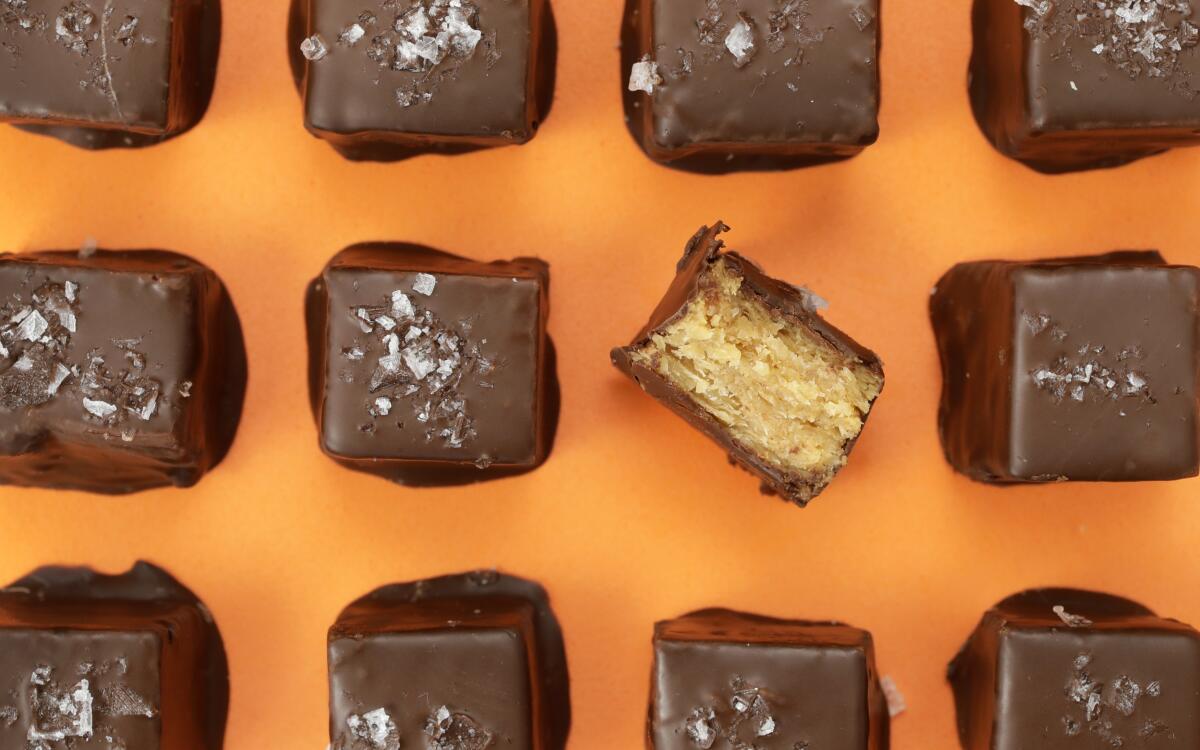
The best part about Butterfinger bars is the crunchy filling that shears off like flaked slate. Honeycomb candy is mixed with warm peanut butter to create the layers of crunchy candy and rich nut butter that are hallmarks of the bar. As unnecessary as it might seem, don’t skip the warming of the peanut butter — it allows the two mixtures to blend more easily, giving you a smoother, more consistent candy.
When it comes time to enrobe — a fancy word for “cover completely” — the peanut candy cubes in tempered chocolate, read this sidebar, which explains an easier way to prepare the chocolate.
And as with all candy making, be careful when cooking sugar because it can cause serious burns if it gets on your skin. If that does happen, immediately submerge your arm in ice water to instantly seize and cool the syrup.
Prepare your workspace: Fill a medium metal or glass bowl with the hottest possible tap water and place it in your sink. Likewise, fill a 2-cup heat-proof glass liquid measuring cup with the hottest possible tap water, then place a candy thermometer in the water. Have a large heat-proof silicone spatula at the ready as well.
Place the peanut butter and salt in the largest metal or heat-proof bowl you have and stir together. In a small bowl, combine the vanilla and the baking soda and set aside with a small spoon in the bowl. Grease an 8-inch square metal or foil baking pan with nonstick cooking spray and line the bottom and two sides with a strip of parchment paper, letting the excess hang over the edges of the pan. Heat the oven to 200 degrees.
In a 2- to 3-quart, small saucepan, combine the sugar, corn syrup and 1/4 cup water and stir to combine with a long-handled heatproof silicone spatula or wooden spoon. Place over medium-high heat and bring to a simmer. As soon as bubbles appear around the edge of the syrup, cover the pan and let cook for 3 minutes; this allows the steam from the syrup to condense on the lid and run back down the side of the pan into the syrup, which helps wash away any undissolved sugar crystals that could make the syrup seize. At this same time, place the bowl of peanut butter in the oven to warm up.
After the 3 minutes, uncover the pan. Remove the candy thermometer from the water and attach it to the side of the saucepan. Add the butter and continue cooking the caramel, stirring occasionally to prevent the dairy solids from scorching on the bottom of the pan, until the temperature of the syrup reaches 285 degrees. When the candy reaches 275 degrees, remove the bowl of peanut butter from the oven and place it on a kitchen towel or other heat-proof surface.
Once the candy reaches 285 degrees, work quickly but carefully: Immediately turn off the heat and use a kitchen towel to remove the thermometer from the pan (it will be hot) and place it in the bowl of hot water in the sink. Use the spoon in the small bowl to quickly stir the vanilla and baking soda together again, then pour it into the syrup. Stir the syrup with the large spatula until it foams up. Then quickly pour the foaming syrup mixture over the peanut butter, scraping it all out of the pan; quickly place the pan in the bowl of hot water in the sink.
Holding the edge of the bowl with a kitchen towel (remember, it’s hot), quickly fold the foaming syrup into the warm peanut butter until the two mixtures form a muddy-looking mixture; the mixture will not be completely homogeneous but, rather, should look like striations of syrup in the peanut butter. Immediately scrape the mixture into the prepared baking pan and gently press it into the corners of the pan and smooth the top. Let the candy cool completely until set, at least 1 hour. This is a great time to clean your equipment* (see Kitchen note below).
Place a cutting board over the baking pan and invert them together so the block of candy falls onto the board. Remove the baking pan and peel away and discard the parchment paper. Using a slicing knife or long chef’s knife, slice the block into 1-inch wide strips, then into 1-inch square pieces; depending on how the edges crumble, you will end up with between four and five dozen pieces.
With your chocolate prepared, begin enrobing the candy pieces: Line a large baking sheet with parchment paper or foil and set it next to your bowl of chocolate. Working with one piece at a time, drop a cube in the chocolate and use a small spoon to cover the cube fully in melted chocolate. Using a three-prong dipping fork or scoop or a long-tined dinner fork, scoop up the cube and then lightly rap the neck of the fork against the rim of the bowl to allow any excess chocolate to drain back into the bowl. Scrape the underside of the fork against the rim of the bowl to clean off any remaining drips, then transfer the candy to the prepared baking sheet, letting it slide off the fork. Repeat with the remaining candy pieces until they’re all coated in chocolate.
After all the candy is coated in chocolate, sprinkle the tops with a small pinch of flaky salt, if you like. Let the candies stand until the chocolate is fully set and dry to the touch, at least 4 hours, before serving or wrapping in candy wrappers.
Once you’re finished making your candy, fill the pot in which you cooked the candy with water and place your thermometers, stirrers and measuring cups in the water too. (If your measuring cup won’t fit, use a bigger pot to clean it.) Bring the water to a boil and let boil for 5 minutes. Pour the boiling water out, then check to make sure any stuck-on candy bits are dislodged; if not, repeat boiling with fresh water. Let everything cool before you hand-wash with soap and water (or place it in the dishwasher).
Get our Cooking newsletter.
Your roundup of inspiring recipes and kitchen tricks.
You may occasionally receive promotional content from the Los Angeles Times.










